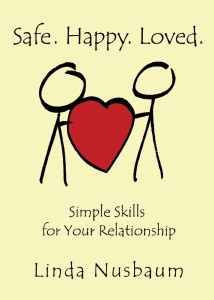One of the biggest frustrations couples face is trying to get their partner to change. I hear this difficulty over and over in the couples I treat. It sounds like this, “If he would only do…..,” “If she would just…..” It’s what many distressed couples say to me. What they really want is for their mate to be different.
Maybe all couples do this, silently wish that the person they love could just improve some of their habits. And if they did then the relationship would be perfect. So many couples just wait for a better day.
Many couples spend their lives wishing their partner were different. They may complain to their mate about what they want, but they often don’t see the partner becoming different so they get frustrated. Sometimes that frustration can lead to disappointment, which can lead to resentment, and that’s a killer in most relationships.
How Inertia and Complacency Burden Change

So why is change so hard for most people? Well most of us don’t really have a reason to make things different. Many of us can stand a little criticism from the mate, and maybe we’ve even gotten used to not hearing it anymore. So what if he or she complains. No big deal.
In fact in my experience in my own life and working with couples I believe people don’t change until they are so uncomfortable with their current situation they don’t really think about it. If it’s just a little uncomfortable, well, that can be endured.
Another thing about change, it’s not easy because although we may not love our current relationship or situation, even a difficult one has something comfortable about it. There is familiarity in what we already know, even if we have to ignore some things or avoid our person once in a while, it’s still something we know how to handle. Maybe happiness isn’t that important.
How Crisis Drives Change
Most humans can bear a lot. In relationships that’s also the case. We don’t think it’s bad enough until one wants to leave it. Then the relationship might be in trouble and at this stage couples often look for a therapist. Sometimes one wants to save the relationship or marriage, and the other one has a foot out the door.
This is a crisis. And at this point it is possible for change. We are only pushed to change when we don’t want what’s in front of us. The person who wants to save the relationship will now probably do anything to save it. Change at this stage is possible.
Why We Wait So Long Before Asking Our Partner to Change

But ask yourself this, “Why didn’t the person know there were problems long before their partner had one foot out the door?” The answer is we don’t want to look at things that aren’t going well. It’s pretty human to just ignore the things that are tough or difficult or hard to talk about. Most couples simply just don’t talk about them, or they have “a talk” and then it’s not talked about again.
Most couples live separate lives with their mates. They love each other, but they don’t talk regularly about what isn’t working in order to make it better. They just go along with what is and hope it will get better on it’s own.
And that’s why making changes is so hard. Most of us just want to believe it will be OK, but in a relationship, that’s the equivalent of wearing blinders.
Learn How to Talk to Your Partner About Change
Read a Book Explaining How to Communicate Lovingly to Bring Change to Relationships
My new book, Safe. Happy. Loved. Simple Skills for Your Relationship may help you notice when you and your mate could use a little change. It also explains how to communicate non-confrontationally, which might just prevent arguments and help you see eye to eye, so you can communicate lovingly.
Get Couples Counseling
Come in for couples counseling. Couples counseling can help you and your loved one get the most out of your relationship. It'll equip you with coping strategies and tools for communication that can help you argue less and love more.


